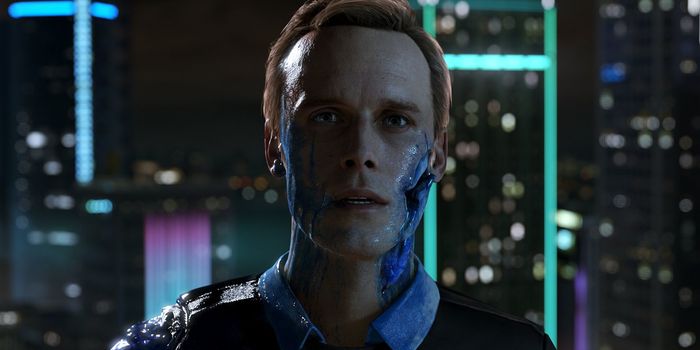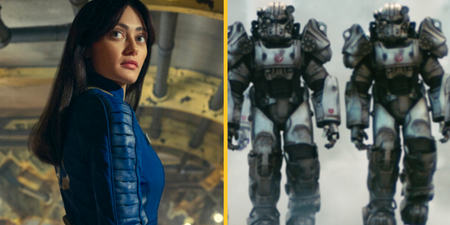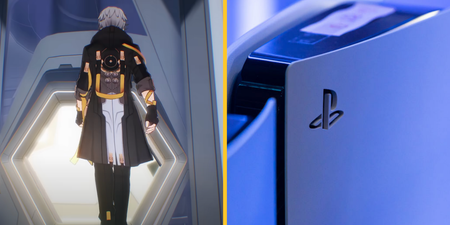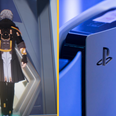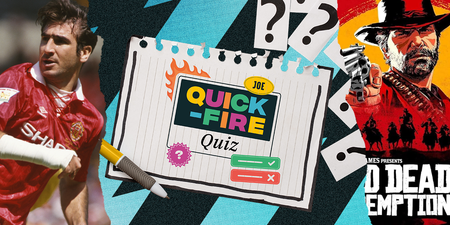And we mean that as a compliment.
Games director David Cage hasn’t made it easy on himself.
Foregoing the usual path of how you think a video game should look and play and feel, Cage has always tried to think more outside the box than most, as the results were… mixed.
You’d be hard pressed to find anyone who remembers his company’s – Quantic Dream – first full release, Omikron: The Nomad Soul, way back in 1999.
Things picked up considerably for 2005’s Fahrenheit (or Indigo Prophecy, depending on where in the world you lived), which would set out the stall for the rest of his career: diverging plot paths, OTT story-telling, interesting premises that have the potential to buckle under the weight of their own self-seriousness.
It mostly worked in his favour for 2010’s Heavy Rain, which ditched the weird supernatural elements of Fahrenheit in favour of a gloomy, Se7en-esque serial-killer thriller, but then he went right back to the mumbo-jumbo for 2013’s Beyond: Two Souls, and he lost us all again.
Detroit: Beyond Human set off alarm bells with that metric ton of a title, but the concept of playing as an android who is about to kick off a robot rebellion sounded like a lot of fun.
Then came the Paris Games Week in December 2017, and a scene was shown involving a young girl being abused by her father, and that self-seriousness came crashing back down all over again.
Clip via GameTrailers
Cage and his new game came under fire from children’s campaigners and members of UK Parliament, accused of trivialising child abuse for the sake of entertainment.
It was, to put it mildly, a bit of a mess. However, within the context of the game, would it make more sense? And on a broader scope, considering his chequered output, would the game even be worth playing?
Thankfully, we can say that Cage has potentially put forward his best work here, and with Detroit: Become Human, hasn’t shied away from tackling some major topics that most blockbuster video games wouldn’t be capable of approaching.
In our first three missions, we’re introduced to the three main characters, all of whom we switch between controlling, depending on where we are in the story.
First up, we control Connor, an advanced police model android who is tasked with hunting down androids that have deviated from their programmed behaviours. In the very first mission, Connor is sent in as a negotiator for a kidnapping situation, as an android has taken a young girl hostage, having already killed her parents.
Next, we take over Markus, a caretaker android, with whom we see our first real impression of humanity’s take on the android race, believing them to have taken all their jobs, and giving them their own segregated spots on buses. (Subtlety, it must be said, has never been Cage’s strong suit.) Markus soon gains consciousness, and makes it his new life goal to free others like him from bondage.
And finally, we play as Kara, the android from the controversial video above. She starts off as a newly-repaired android being retrieved by her gruff owner, but before long, she too begins to develop artificial consciousness.
Watching how these three characters will eventually be forced into each other’s paths is part of the fun of playing, as it is up to you what decisions they all make, and it helps that Cage has both upped his writing and directing skills, and matched them with a great, all-star cast, which includes the likes of Minka Kelly (Friday Night Lights), Clancy Brown (The Shawshank Redemption), Jessie Williams (Cabin In The Woods), Lance Henriksen (Aliens), Valorie Curry (House Of Cards) and loads more besides.
Clip via PlayStation
In much the same way that Kevin Spacey hammed it up a storm for Call Of Duty, and the horned-up teenagers of Until Dawn perfectly matched their B-movie surroundings, the cast here do bring the necessary gravitas to their roles, as each character is sent on an intelligently played-out emotional rollercoaster – one that will affect the player directly because we’re well aware that one false move, one badly-answered question, or one missed clue will send us down one particular narrative tunnel, only to be tortured by the what-ifs come the end of each chapter.
Yes, at the end of every individual mission, we’re shown a kind of “decision tree”, starting off on a singular path, before branching into more and more potential resolutions, each with their own stems of possibility, and we get to see the worldwide percentage of what other players have taken, too.
It is a very clever way of getting players to go back and replay the game, knowing with certainty that there are aspects – and potentially huge, game-changing aspects at that – that they have missed first time around.
Which isn’t to say that Detroit: Become Human is a perfect game: the Resident Evil-esque camera system means that actually controlling the characters can suddenly become very finnicky when you need to focus on something quite small in a large space, and as mentioned above, while Cage’s actual storytelling techniques have improved, he is still guilty of taking one too many steps into ponderous, chin-stroke’y, amateur philosophy land.
Oh, and anyone who uses video games as a means of escapism, with lots of guns and explosions, this is absolutely not the game for you.
But if you’re looking for something different from the mainstream releases, with some real thought and care put into it, not just another shoot ’em up with a numeric on the end, that provides a satisfying experience for the player, then you will be hard pressed to find a better option than this.
Detroit: Become Human is released on PlayStation 4 from Friday 25 May.
LISTEN: You Must Be Jokin’ with Conor Sketches | Tiger Woods loves Ger Loughnane and cosplaying as Charles LeClerc
